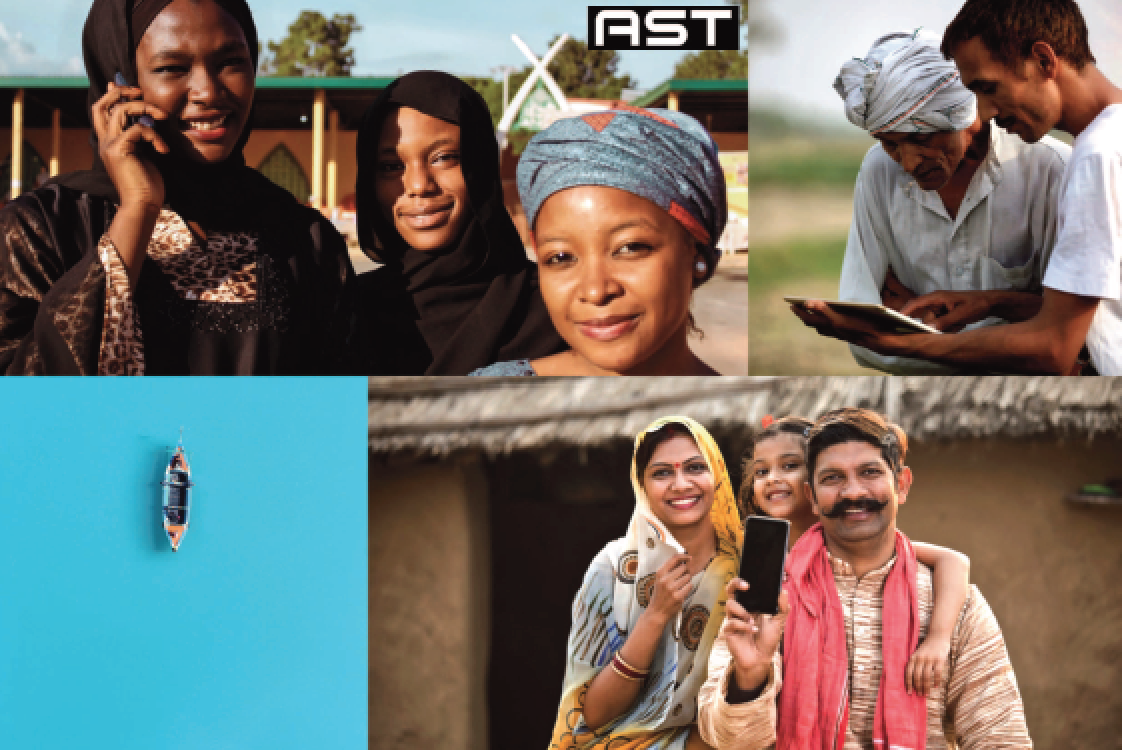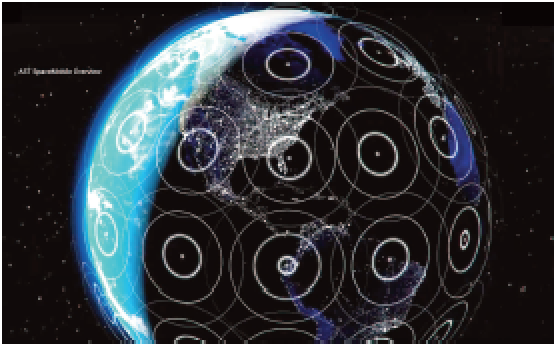Currently, half of the world’s population, nearly 4 billion people, lacks mobile internet access, this according to mobile industry group GSMA (Global System for Mobile Communications, originally Groupe Spécial Mobile). More people rely on their cell phones than any other means for connectivity.
Solve the mobile internet access problem and the other half of the world would light up.

Imagine the impact when a farmer without internet access in a remote part of Africa is suddenly able to connect to market prices, weather forecasts and banking services from a cell phone. Or, when a refugee fleeing a war zone can get remote medical care, or a lost hiker on the Appalachian Trail can make an emergency call that means the difference between life and death.
All of these applications require far more widespread mobile internet access. Fortunately, a Low Earth Orbit (LEO) satellite constellation launched by AST SpaceMobile will soon blanket the Earth with mobile internet access, reaching areas of the world where regular cellular access could never be reliable or cost-effective.

The smartphone in your pocket will be everything you need to be connected to anyone, anywhere.
Such radical advances in equal access would improve people’s’ lives in three main areas: growth, well-being and opportunity.
Fueling Economic Growth
Opening up the rest of the world to the internet would provide an enormous boost to the global economy and bring financial inclusion to those previously unconnected. Having reliable and affordable connectivity would mean that a person in the most remote village could access financial services such as microcredit or digital payments.
For example, the M-Pesa digital payment system, now a joint venture between Safaricom and Vodafone, has already helped lift 194,000 Kenyans out of poverty by lowering the cost of sending payments and enabling women to set up small businesses instead of working in agriculture.
With greater access, small businesses could compete with big businesses and connect with buyers in other countries. Rural residents could shop for goods and services similar to those found in urban areas, at lower cost. People could work from anywhere and sell their services to anyone.
The World Bank estimates that every 10 percent increase in broadband penetration in developing countries raises GDP by 1.4 percent, a significant lift. (In developed countries, that increase is 1.2 percent.) The McKinsey Global Institute calculated that enabling more people to plug into global flows of information, communication and services and facilitating greater connectivity in high-priority commercial domains could add as much as $4 trillion to global GDP.
Fostering Well-Being
The mobile internet has sparked movements for social change across the world, toppled governments and influenced the outcome of elections. New mobile internet users could develop skills, vote, and see a doctor on their phones. Of course, with greater connectivity come downsides, such as surveillance and disinformation that must certainly be mitigated.
Telemedicine is one example of the social benefit. Satellite internet services have enabled ambulances in rural areas of Scotland to transmit video that connects paramedics with doctors en route to the hospital and help save lives in the critical “golden hour” after an injury.

Democratizing Opportunity
When the entire world lights up, a child in a remote village in Alaska would have the same access to information and knowledge as a youngster in urban California.
When deployed with the correct information and incentives, increased access to the internet can help level the playing field among rural citizens. The young and urban have more than twice the internet access as older and rural citizens, according to the World Bank. Connecting more rural people is a mission for developing countries: even more so in developed nations such as the US — 97 percent of the land mass is rural and rural America is home to 60 million people.
When we level the playing field, new groups of people can enter the labor force. Governments can better serve rural or marginalized populations, enabling a more effective coronavirus pandemic response, for example. Residents can make a living in their villages rather than migrate to big cities.
When any business on Earth can be online, anyone can compete in the global economy. Taobao villages, named after the Alibaba online shopping platform in China, show how a heavy investment in extending broadband to rural areas has helped tens of thousands of small, e-commerce merchants across 4,310 villages reach national and global markets. About one-third of store owners are female and one-fifth were previously unemployed.
However, this isn’t just a story about the possibilities for the developing world. Extending mobile internet everywhere on land, sea, and air opens up new opportunities for developed countries, as well. When everyone can be continuously connected — regardless of whether they are working in a remote cabin, driving through the countryside, flying on a plane, or sailing the ocean — the impact will be profound.

Ultimately, when the entire world can access greater opportunity and mobility, much more of the world’s population can thrive. With greatly expanded and more equal internet access, that idea becomes reality. The time has come to think about connectivity as a human right, along with access to clean water and electricity.
https://ast-science.com/spacemobile/

Abel Avellan is chairman and CEO of AST SpaceMobile, the first and only space-based cellular broadband network for mobile phones. He brings more than 25 years of success in the space industry. A co-inventor of 18 patents, he is cultivating another team of brilliant scientists and engineers to transform space technology as we know it — and more importantly — what we can do with it. Most recently, he was the founder and CEO of EMC until its sale for $550 million in 2016. Abel and his companies have been honored with multiple industry awards, including the World Teleport Association's Satellite Teleport Executive of the Year (2017) and Fastest Growing Satellite Company several years in a row, as well as Euroconsult's Satellite Transaction of the Year (2015).

